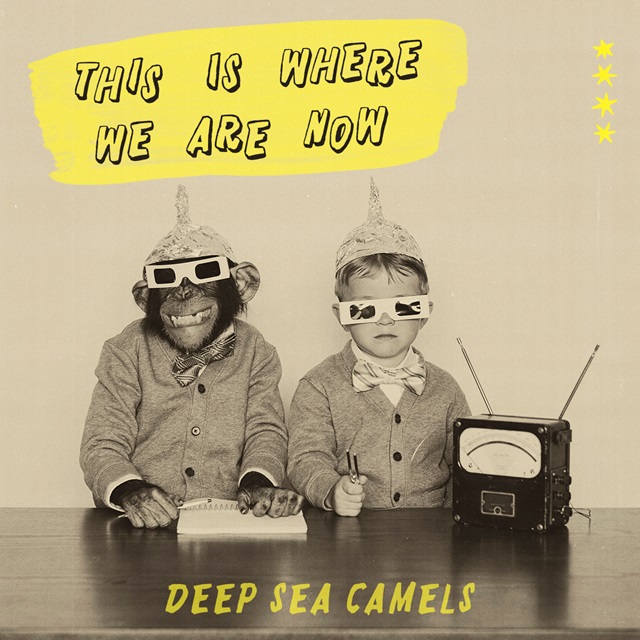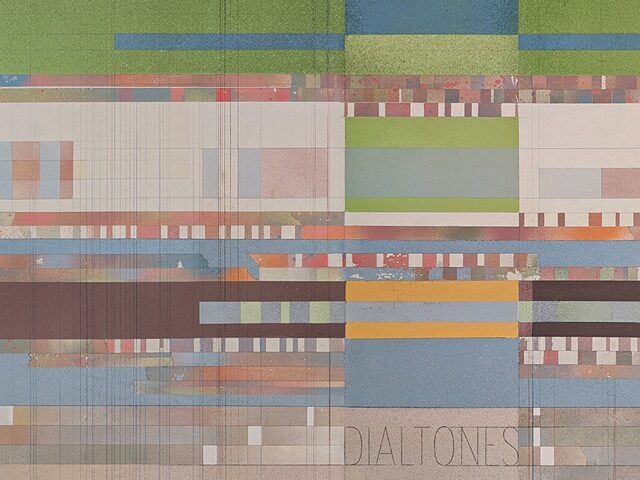
Deep Sea Camels show a hooky rock charisma throughout their second studio album, This Is Where We Are Now. Delving into themes of individuality, creativity, and the struggles of modern life, the pointed lyricism combines with consistently strong songwriting. Singles “That’s What I’m Told” and “How To Be Happy” stir alongside six new original tracks. “This album is a celebration of our musical journey and the timeless bond we share,” says frontman Mike Dobson. “We’ve challenged ourselves and pushed the boundaries a little more on this album. We think our fans, old and new, are going to really enjoy it!” The new album follows up Cheapside and Kings, the band’s debut, which we featured last year.
“I don’t know how to be happy anymore,” soaring vocals admit on the opening track, alternating between seamless title-touting proclamations and more debonair admissions of how good moments were “too few and far between.” “How To Be Happy” excels in kicking off the album, strutting the band’s knack for big-time hooks that move seamlessly into verses strutting ample momentum. An illuminated horns section wonderfully bolsters the guitar-driven instrumentation and fervent vocals.
The dynamic showcase continues on the subsequent “That’s What I’m Told,” a scathing observation on how society’s “rules-based system,” can stifle creativity and individuality. Suave vocals plead not “lose your grip,” as sludgy, sporadic guitars emanate alongside a crawling bass line. “Flowers being trampled,” the vocals let out during the replay-inducing central hook, maintaining the confident vocal tone as the guitars intensify around; the album’s one-two punch is an exciting representation of the project’s quality songwriting and tonal-changing production.
While the openers ascend with a bright rock composure, Deep Sea Camels also show a convincing ability to craft ballads. “Memory Wall” succeeds with a building-up reflection of a failed romance, remarking “vanishing people, they saw through it all,” as reverbed guitars enter alongside the thumping bass and steady percussion. Accounts of “weeping alone,” about “the body of our love, picked to the bone,” plays with heartrending effect, resonating with new feelings of loneliness, where one’s heart is empty — to the point of there being nothing for even vultures to pick at.
The album’s first side concludes with “Day at the Beach,” a more approachably breezy rocker aspiring for greater peace and harmony — a tonal contrast to the preceding ballad, though succeeding all the same in its quality songwriting, especially in its warming “listen to your hearts, people,” chorus. “Birds of a Feather” commences side two with a funky bass drive, traversing into bluesy guitar buzzing amidst co-collaborator Fiona Carter’s gripping vocal performance. The “never looking back,” shift is particularly consuming in its effervescent drive into brass-laden “we stick together,” encouragements. “At the risk of showing our age, that’s our love song to the Hacienda!” lead guitarist Steve Hurst says of the track.
Bluesy rock spells persists on the next two tracks, “Help Is On Its Way” and “The Wolf Returns.” The former touts a more roaring charisma alongside elongated vocal passion, while “The Wolf Returns” succeeds with a dreamier initial contemplation, as wordless vocals swell with lushly hypnotic immersion. “Exiles” concludes the album with a jangly charm, feeling like a microcosm of previous themes presented in its pleas to “keep the faith,” for individuality and creativity within a world full of strife, conformity, and general malaise; the “no cluttered thoughts to irritate your mind,” and consequent desires to “break the chain,” prove invigorating. This Is Where We Are Now is a strongly memorable output from Deep Sea Camels.





